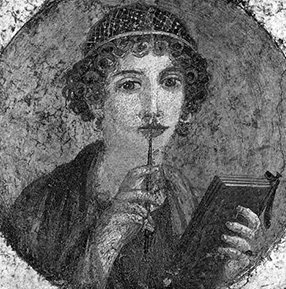[O But My Delicate Lover]
O but my delicate lover,
Is she not fair as the moonlight?
Is she not supple and strong
For hurried passion?
Has not the god of the green world,
In his large tolerant wisdom,
Filled with the ardours of earth
Her twenty summers?
Well did he make her for loving;
Well did he mould her for beauty;
Gave her the wish that is brave
With understanding.
“O Pan, avert from his maiden
Sorrow, misfortune, bereavement,
Harm, and unhappy regret,”
Prays one fond mortal.
This poem is in the public domain. Published in Poem-a-Day on June 1, 2024, by the Academy of American Poets.
“[O But My Delicate Lover]” was published in Sappho: One Hundred Lyrics (Chatto and Windus, 1907), translated by Bliss Carman. In his introduction to the volume, poet Charles G. D. Roberts wrote, “Sappho was at the height of her career about six centuries before Christ, at a period when lyric poetry was peculiarly esteemed and cultivated at the centres of Greek life. Among the Aeolic peoples of the Isles, in particular, it had been carried to a high pitch of perfection, and its forms had become the subject of assiduous study. Its technique was exact, complex, extremely elaborate, minutely regulated; yet the essential fires of sincerity, spontaneity, imagination and passion were flaming with undiminished heat behind the fixed forms and restricted measures. The very metropolis of this lyric realm was Mitylene of Lesbos, where, amid the myrtle groves and temples, the sunlit silver of the fountains, the hyacinth gardens by a soft blue sea. Beauty and Love in their young warmth could fuse the most rigid forms to fluency. […] Perhaps the most perilous and the most alluring venture in the whole field of poetry is that which Mr. Carman has undertaken in attempting to give us in English verse those lost poems of Sappho of which fragments have survived. The task is obviously not one of translation or of paraphrasing, but of imaginative and, at the same time, interpretive construction. It is as if a sculptor of to-day [sic] were to set himself, with reverence, and trained craftsmanship, and studious familiarity with the spirit, technique, and atmosphere of his subject, to restore some statues of Polyclitus or Praxiteles of which he had but a broken arm, a foot, a knee, a finger upon which to build.”

